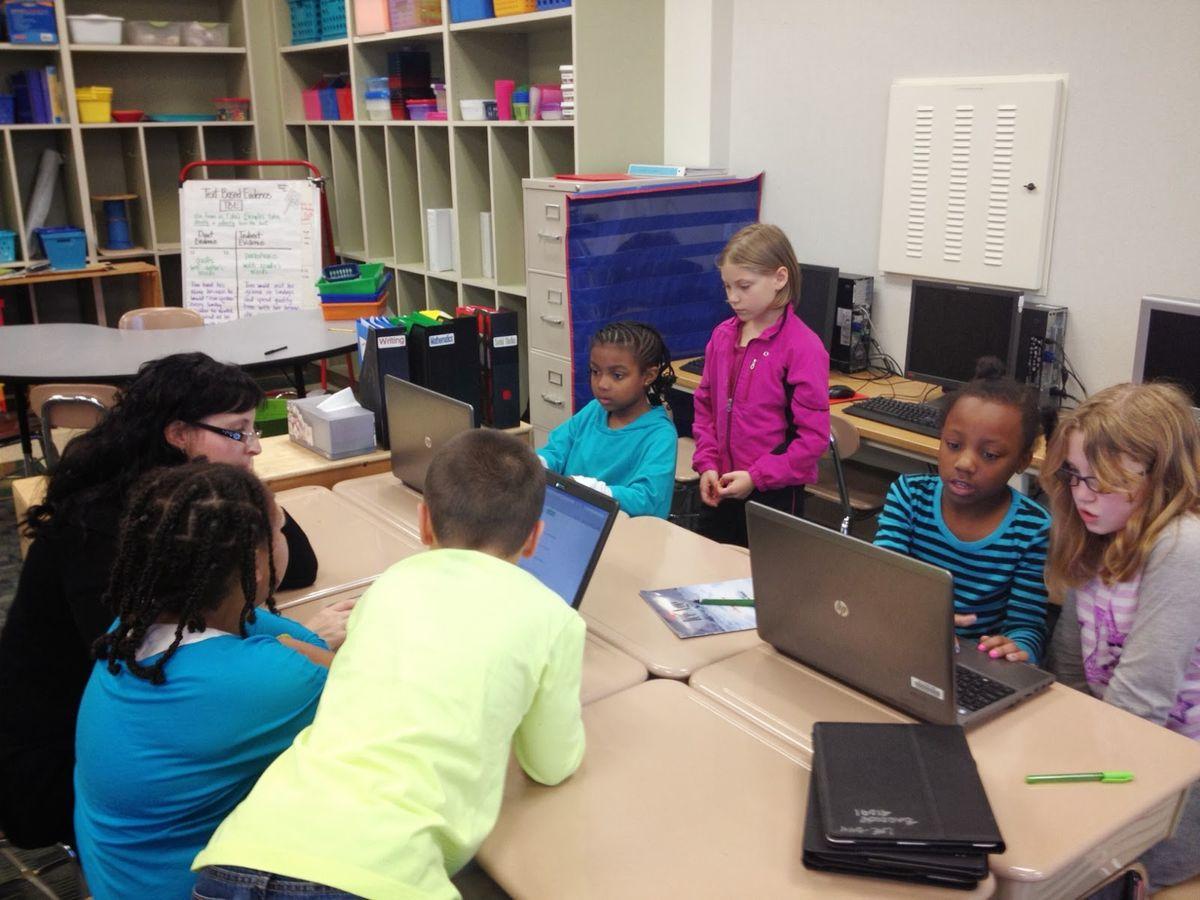In today's rapidly evolving professional landscape, harnessing the power of interactive tools is essential for effective education and development. This article explores various technological solutions that are reshaping the way professionals learn and grow in their careers, focusing on interactive learning platforms, enhanced soft skills training, and innovative assessment mechanisms.
Key Takeaways
- Interactive tools like VR and AI personalize and deepen professional learning experiences.
- Technology-enabled platforms facilitate continuous learning and skill enhancement remotely.
- Assessment tools integrated with real-time feedback and peer reviews significantly improve professional growth.
Leveraging Technology in Professional Development

Virtual Reality for Immersive Learning Experiences
Embrace the power of Virtual Reality (VR) to simulate complex environments for hands-on training without the physical risks. Industries like healthcare, aviation, and engineering are already benefiting from VR setups like Oculus Rift and HTC Vive to train professionals in a risk-free, controlled environment. VR not only enhances the learning experience but also significantly reduces training costs and time.
AI-driven Personalized Learning Paths
AI technologies such as IBM Watson and Coursera's AI tutors offer tailored learning experiences that adapt to your pace and style of learning. You can benefit from a personalized curriculum that identifies your weak spots and strengthens your skills through targeted exercises and feedback. This approach ensures that you're always challenged but never overwhelmed.
Collaborative Tools for Remote Teams
In today's globalized work environment, effective collaboration across distances is crucial. Tools like Slack, Microsoft Teams, and Asana enable seamless communication and project management among team members, regardless of their physical location. Utilize these tools to enhance your team's productivity and foster a culture of open communication and shared responsibility.
Interactive Learning Platforms

Gamification in Corporate Training
Incorporating gamification into corporate training can significantly boost engagement and retention rates. Implement game mechanics like points, badges, and leaderboards to motivate employees. For instance, platforms like Badgeville or Bunchball integrate seamlessly into existing training modules, enhancing the learning experience.
Mobile Learning Applications
You should consider mobile learning applications to provide flexibility and accessibility in training. Apps like Udemy or Coursera offer courses that professionals can access anytime, anywhere, making it easier to fit learning into a busy schedule. This approach supports personalized learning paths and allows for a more tailored educational experience.
Adaptive Learning Systems
Adaptive learning systems use algorithms to adjust the content based on the learner’s performance, ensuring that each professional receives instruction at their pace and level. Systems like DreamBox Learning or Smart Sparrow can help you design courses that adapt in real-time, providing a truly personalized learning environment.
Enhancing Soft Skills Through Technology

Virtual Communication Tools
In today's remote work environment, mastering virtual communication tools is essential. Platforms like Zoom and Microsoft Teams not only facilitate video conferencing but also offer interactive features like live polls and breakout rooms, enhancing engagement and teamwork. To optimize your virtual meetings, start by setting clear agendas, actively using engagement tools, and regularly seeking feedback to improve the experience.
Online Leadership Workshops
Leadership skills can significantly benefit from specialized online workshops. Platforms such as Coursera and LinkedIn Learning provide courses designed by industry experts. Focus on courses that offer practical assignments and real-time feedback to maximize learning. It's crucial to apply the learned skills in real-world scenarios to solidify your understanding and effectiveness.
Emotional Intelligence Apps
Apps like Moodfit and Sanvello help professionals enhance their emotional intelligence by providing tools for mood tracking and stress management. Regular use of these apps can lead to better self-awareness and improved interpersonal relationships. Aim to integrate these practices into your daily routine to see a noticeable improvement in your interactions and overall mental health.
Assessment and Feedback Mechanisms

Real-time Feedback Tools
Incorporate real-time feedback tools like Slack or Microsoft Teams to enhance immediate communication and adjustment during projects. These platforms allow you to send and receive instant feedback, ensuring that all team members are aligned and can make quick decisions based on the latest information.
- Immediate response: Ensures quick corrections and adaptations.
- Enhanced communication: Keeps the team connected.
- Data-driven decisions: Utilizes feedback for better outcomes.
Peer Review Platforms
Utilize platforms such as GitHub or Peergrade to facilitate peer-to-peer review sessions. These tools not only foster a collaborative environment but also help in identifying areas of improvement and celebrating strengths within your team.
- Upload your work to the platform.
- Request reviews from peers.
- Implement feedback to refine your outputs.
Performance Tracking Software
Adopt performance tracking software like Asana or Monday.com to monitor and analyze team performance over time. This software provides detailed analytics that help in understanding trends, identifying bottlenecks, and improving overall efficiency.
Ensure you set clear metrics and goals to effectively track progress and impact.
| Metric | Baseline | Target |
|---|---|---|
| Efficiency | 70% | 85% |
| Project Completion Rate | 80% | 95% |
| Team Satisfaction | 75% | 90% |
Conclusion
In conclusion, interactive tools are revolutionizing the way professionals learn and grow in their respective fields. By embracing these innovative resources, individuals can enhance their skills more effectively and stay ahead in the competitive landscape of today's industries. It is essential for professionals to leverage these tools to foster a continuous learning environment and achieve greater success in their careers.
Frequently Asked Questions
How can virtual reality enhance professional development?
Virtual reality can provide immersive learning experiences that simulate real-world scenarios, allowing professionals to practice skills in a controlled, interactive environment. This enhances learning retention and prepares them for practical application in their fields.
What are the benefits of AI-driven personalized learning paths?
AI-driven personalized learning paths adapt to the individual's learning pace, strengths, and weaknesses, offering a customized experience that maximizes efficiency and effectiveness in skill development. This personalization helps in targeting specific professional needs and goals.
How do collaborative tools benefit remote teams?
Collaborative tools enable remote teams to communicate and work together efficiently despite geographical distances. These tools facilitate project management, real-time communication, and file sharing, which are essential for maintaining productivity and cohesion in remote work environments.
